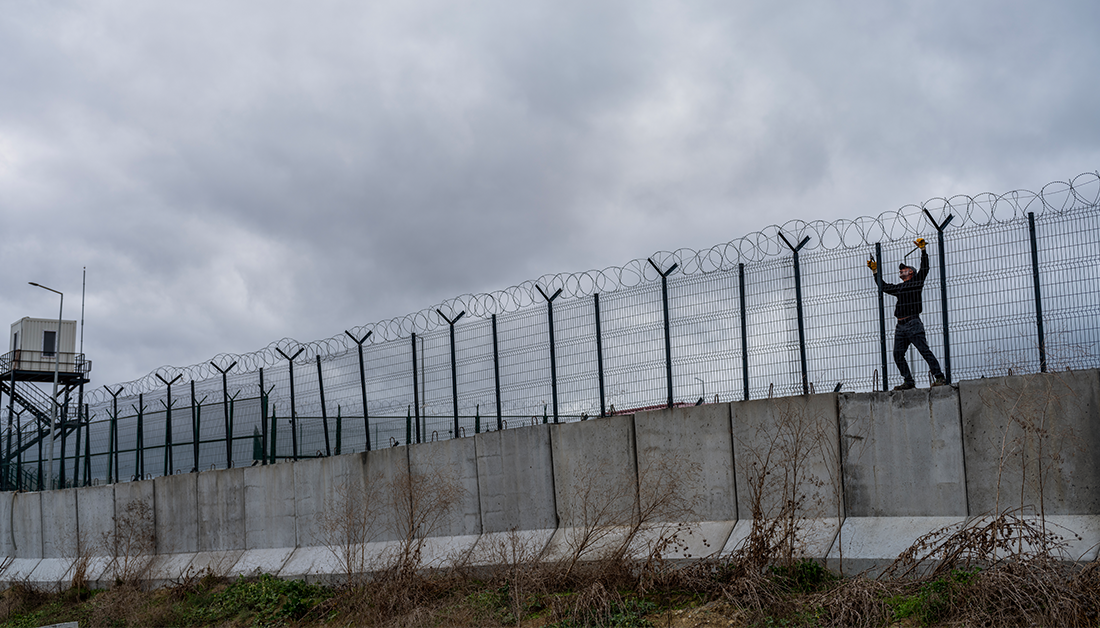Syrian and Afghan men, women and children are being locked in EU-funded removal centres where they face torture and abuse before being forcibly deported to sometimes deadly conditions — as the EU watches on.
Over the last decade, millions of refugees fleeing persecution from Taliban rule and the ongoing Syrian civil war have sought refuge in Turkey. The EU deems it unsafe to deport Syrians and Afghans back to their home countries, yet makes Turkey a buffer zone to stop them reaching Europe — in return for billions of euros.
In recent years, with the Turkish economy nosediving and anti-refugee sentiment rising, Turkey has stepped up efforts to deport migrants. Hundreds of thousands of Syrians and Afghans have been returned from Turkey. This has been made possible by a vast infrastructure of arrest, detention and expulsion — one of the largest migration detention systems in the world — built and funded by the EU.
An investigation by Lighthouse Reports, in collaboration with El País, Der Spiegel, Politico, Etilaat Roz, SIRAJ, NRC, L’Espresso and Le Monde, provides an unprecedented look inside this deportation system and how the EU knowingly helped create and sustain it.
The journalistic team spoke with over 100 sources, including 37 people who had been detained in 22 different EU-funded removal centres, as well as Turkish, Syrian and Afghan officials and former removal centre staff. Their testimonies about poor conditions, systemic violence and being forced to sign “voluntary” returns documents were supported by an extensive review of visual evidence, court rulings and hundreds of pages of EU documents.
The EU is facilitating a deadly deportation machine in Turkey that is sending 100s of thousands of Afghans back to the Taliban & Syrians to ongoing conflict
A new investigation from @LHreports & partners reveals millions of euros spent on a system of abuse and forced returns 🧵 pic.twitter.com/PO3TyDhDk5
— Lighthouse Reports (@LHreports) October 11, 2024
In the most detailed analysis of EU funding for migration management in Turkey to date, the journalists combed through EU and Turkish official reports and briefings, research papers, and procurement and call for tenders documents. They submitted more than 20 freedom of information requests to European Commission agencies, many of which were denied on the grounds that they could harm EU relations with Turkey.
They also captured images of EU-funded equipment being used by Turkish officials to conduct mass arrests targeting refugees on the streets of Turkey and transport refugees back to Syria, and traced the equipment in internal EU documents to try to establish their original purpose.
The team talked to over a dozen European diplomats and officials in both Brussels and Turkey to better understand the level of official awareness of these abuses and issues with EU monitoring mechanisms meant to provide oversight over how EU funds are used.
The journalists found that the EU is aware that it is funding this abusive system, with its own staff raising alarm about it internally – yet senior officials choose to turn a blind eye.
